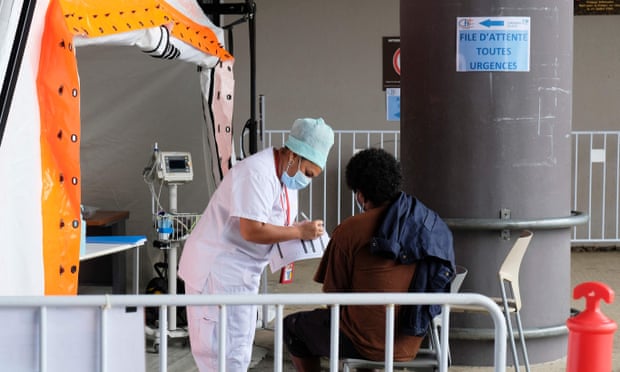The credibility of New Caledonia’s third and final independence referendum has been questioned after indigenous leaders warned that participation could be adversely affected by the Covid pandemic.
The French government has announced that the referendum will proceed as planned in December after the coronavirus crisis eased.
But the pro-independence FLNKS party has been calling for a postponement and has called on supporters do not vote on 12 December because the indigenous Kanak people – who are more likely to vote for independence – are in mourning for victims of the pandemic. Kanaks have been far more seriously impacted by the pandemic than Europeans in the Pacific territory.
The referendum is the third and final poll asking whether the Pacific territory wishes to become an independent nation. Support for independence increased from 43.3 percent in the first vote in 2018, to 46.7 percent in 2020. It had expected to be close to, if not over the required 50 percent in the final vote.
However, Covid has greatly impacted the push for independence.
Eighty percent of New Caledonia’s 267 deaths and 10,500 Covid cases have been among the Kanak and other Pasifika people, who were more likely to support independence in previous votes.
The virulent Delta surge saw the territory go from zero cases at the start of September to more than 10,000 cases within six weeks, with lockdown measures affecting traditional Kanak mourning rites. The lockdown measures include curfews, a ban on gatherings of more than five, anda limit of nine mourners at a funeral.
As lockdowns lift, FLNKS leaders have said that the first priority of Kanak communities will be to complete customary mourning ceremonies, which often take several months, rather than campaigning for the upcoming independence vote.
A FLNKS member, Charles Wea, said the virus had devastated the Kanak people. He described 30 deaths in his family, spread across Ouvea and Lifou Islands, as well as the north of the main island.
He called France’s minister for overseas territories, Sebastien Lecornu, “a cowboy, because he doesn’t want to pay attention to what we are asking, he doesn’t respect our customs”.
Wea said mourning requirements would prevent Kanaks from campaigning throughout the territory as they would be focusing on visiting bereaved communities for traditional ceremonies.
Wea said normally large crowds would come to mourn with the bereaved, with ceremonies including long speeches by uncles, chiefs and of what they had accomplished in life.
“We are not in the mood for campaigning,” said Annie Wakaine, whose cousin – the widow of a prominent independence leader – died from Covid recently. “It’s so very difficult for us. We never thought it could be like this. All the country is in mourning, above all Kanaks and Oceanians. We use Messenger, Facebook video, but no family has come, no gatherings. We stay home. It’s so very difficult for us.”

A huge outbreak of the Delta strain in New Caledonia led to lockdowns, and disproportionately affected indigenous Kanak people and other Pasifika communities.
The FLNKS has informed the United Nations decolonisation committee, with which it is been listed since 1986, that conditions are not conducive to holding a referendum.
Kanak non-participation and the call for postponement of the poll has been supported at the UN by the Melanesian Spearhead Group of Papua New Guinea, Solomon Islands and Vanuatu.
Speaking on local television last week, Victor Tutugoro, leader of one of the parties in the FLNKS coalition, warned that if the poll went ahead on 12 December, the FLNKS and its supporters would not be present on the 13th to plan the country’s future.
“Why would we take part when we have not been listened to? he asked.
SOURCE: THE GUARDIAN














